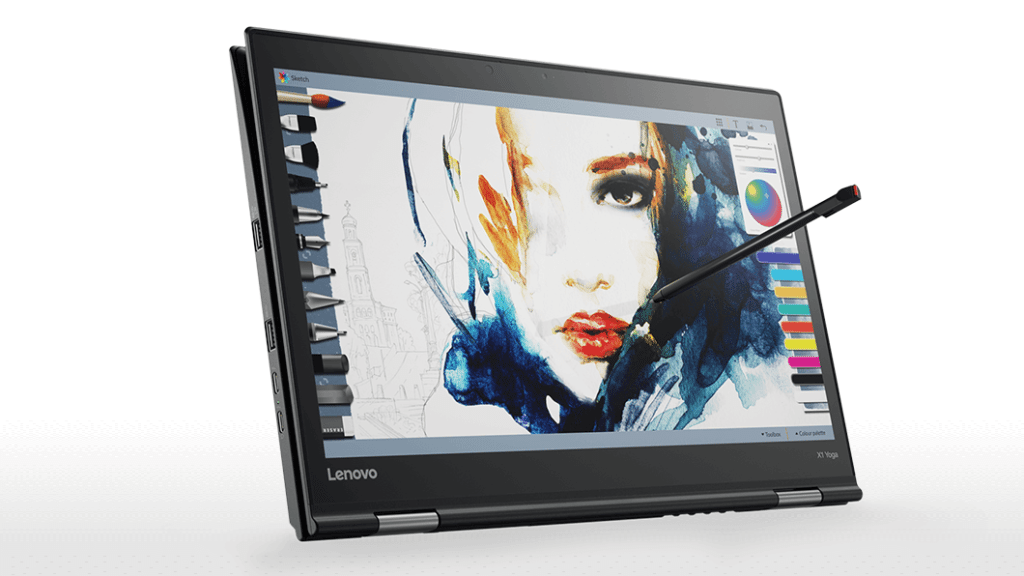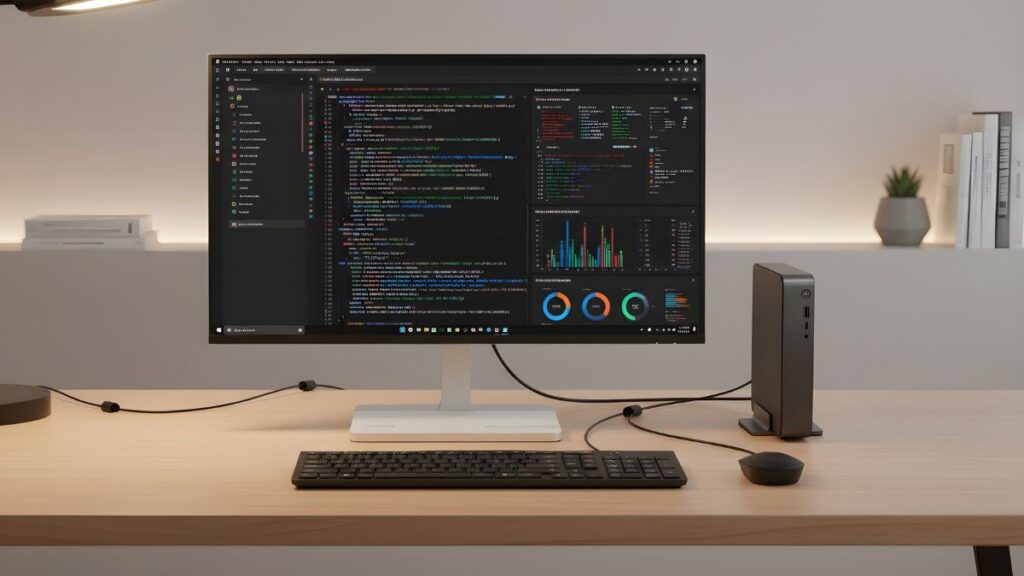It is summer and time to consider whether that aging laptop you’ve been lugging around should be replaced. You now have the time to migrate all your crap from the old machine to the new one, and I have some good news and not so good news in that regard. The good news is that the migration part has become surprisingly easy over the years—it generally takes me under 2 hours now and that includes loading apps. The bad news is there are a ton more choices than there used to be regarding portable PCs.
So, before you choose or buy that new laptop you’ll need to decide which branch best meets your needs. I got two new Lenovo ThinkPads in the other day in silver (by the way, right now I’d only get a ThinkPad in black) and they define this difficult choice.
The two were the Lenovo ThinkPad X1 Yoga and the ThinkPad X1 Carbon. The Yoga is a fully loaded 2-in-1 and the Carbon is a more modest traditional laptop. Both are thin, light, have decent battery life, similar processors, storage, and memory. Both have lots of ports and, generally, don’t need dongles (they are HDMI so you may need to convert depending on the age of any projector you use for presentations). Both have SD card slots built in and both have the option of a WAN (cellular) connection (This option is growing on me, I’ll touch on that later). But the Yoga can be used as a tablet, has an OLED touch screen, and higher price.
Yoga vs. Carbon
The first question is whether you really need a laptop sized tablet. I do use a tablet a lot but it is an 8-inch screen Kindle—mostly for reading. The idea of trying to read off a 13-inch tablet has me thinking this is more exercise than fun and I simply don’t use the tablet side of 2-in-1s myself. Yes, they are better for doing things like watching movies but until Amazon and Netflix make nice with Microsoft (which they will be doing in a few months), using a laptop on a plane to watch a movie you aren’t streaming is problematic.
Now where 2-in-1s shine is with people that like to use a pen either to write or to draw. My handwriting in largely illegible and a 2-year-old wouldn’t be proud of my artistic skills but for those that are more skilled than me or have a solid business need to use a pen the 2-in-1 is highly useful.
90 percent or so of the folks that have 2-in-1s rarely use the tablet feature but for those that need it, or for those that have the skills to use it, it makes a lot of sense. And once you can download movies onto laptops again, watching one in tent mode (where you flip the laptop over and put the screen in in front of you and the keyboard behind it) could be yet another reason to prefer the Yoga.
Now, and for most of us, I expect the Carbon (traditional laptop) would be the more useful choice.
OLED
OLEDs have two advantages, one critical and one associated with status. On the critical side, they tend to be more color accurate which means if you are showing something, or creating something where color accuracy is important then they are a good choice. They also look stunning, giving you the status of having something look better than the person in the plane seat next to you. However, they can cost a lot more and they drop battery life by around 10 percent which for the rest of, regardless of how good they look, make them impractical. But while they look good, unless you have a critical need for color accuracy (particularly deep blacks), the battery life you lose is likely more valuable than the screen is right now.
Touch-Pen
Once you use touch you can’t go back. I currently can’t live without touch on a laptop and when I have a laptop without touch I tend to accidentally try to poke holes in the screen. Unlearning touch is hard. Still if you haven’t started with touch and don’t use a tablet much you probably won’t miss not having it. As noted above, I can’t write or draw worth a damn so, while I have a lot of PC pens, I never use them. But part of that reason is I tend to lose them as there are times, like filling out forms, when they are damned handy. Lenovo puts a dock in the Yoga for a pen so you are less likely to lose them and even though this can make the pen uncomfortable to use (it forces a very thin pen) I prefer the dock. But if you use the pen a lot you’ll likely migrate to a fatter one because it will feel better leaving the built-in pen for emergencies like when you leave your fat pen behind. (Did I just body shame a PC pen?)
Wrapping Up
For me, the Lenovo ThinkPad X1 Carbon is the best choice—but with a touch screen because I’m addicted to touching the damn screen. I envy the folks that can make use of the tablet features of the X1 Yoga but must admit that the related extra cost isn’t worth the extra utility because I won’t use it. I might revisit this when you can download movies onto a PC, but I doubt it. Both products have battery life well above 10 hours (15+) and 10 hours is likely the minimum you should get going forward, and both have Thunderbolt 3 ports which provides connectivity headroom and allows you to thumb your nose at Apple laptop users (as in, you have it too but don’t have to use it because you have a far better port out with fully USB, USB-C, HDMI, and far less need for dongles).
One final comment if you’ve never used a ThinkPad they are defined by the most amazing feeling keyboards on the market, very high build quality, and that impressive number of ports. While you are shopping, always make sure you at least check the ThinkPad version out because it often sets the bar when it comes to non-gaming laptops. But, for now, get it in black.
- The Silicon Manhattan Project: China’s Atomic Gamble for AI Supremacy - December 28, 2025
- A Legacy of Defense: Why HP Stands Alone - December 19, 2025
- Plumbing the AI Revolution: Lenovo’s Strategic Pivot to Modernize the Enterprise Backbone - December 17, 2025




Why do you suggest we get the Thinkpad X1 in black. I had my eye on the silver. I have an older X1 and it is a magnet for dust and fingerprints.
I’ve seen the silver and the black. They do black very well, it is really hard to do silver well and it is paint as opposed to metal in other competing products. I’d put their black up against anyone, their silver needs work. You may not be as picky as I am though so take a look at one in person, you may be ok with it. (I wasn’t).
Thanks, Rob. Very much appreciate that additional insight.
Thanks, this is very helpful – exactly my dilemma right now. I’m (somewhat reluctantly) drawing the same conclusion; the Carbon has less functionality, but I most likely won’t use the Yoga functionality anyway.
Why is the WAN connection growing on you?
It is nice to just turn the thing on and connect regardless of whether I can find Wi-Fi or not. I’ve got several ways to set up local access points, both on my phone and with my T-Mobile puck. But I don’t always have the puck charged or with me and not all of my phones will allow me to use the internal access point (not sure why really, but some work and some are grayed out, same carrier). Anyway now that we have the ability to put other devices on the same account, just having the capability built in is a ton less annoying. When you had to have a spate account for every device all those underused accounts just seemed uneconomical.
That does sound useful. Time to do some research on how which carriers offer those plans and how they work. Thanks!
I got a new Lenovo Laptop 3 weeks ago and its running great so far. the keyboard is a lot easier to type for me unlike before It runs fast and the speakers are good quality, the screen is really good quality and its just awesome quality altogether
Billed as the world’s lightest 14-inch business ultrabook, this ultrathin and ultralight. Lenovo’s most beloved business laptop, the Thinkpad X1 Carbon, just got even better.
I’ve seen the silver and the black. They do black very well, it is really hard to do silver well and it is paint as opposed to metal in other competing products.